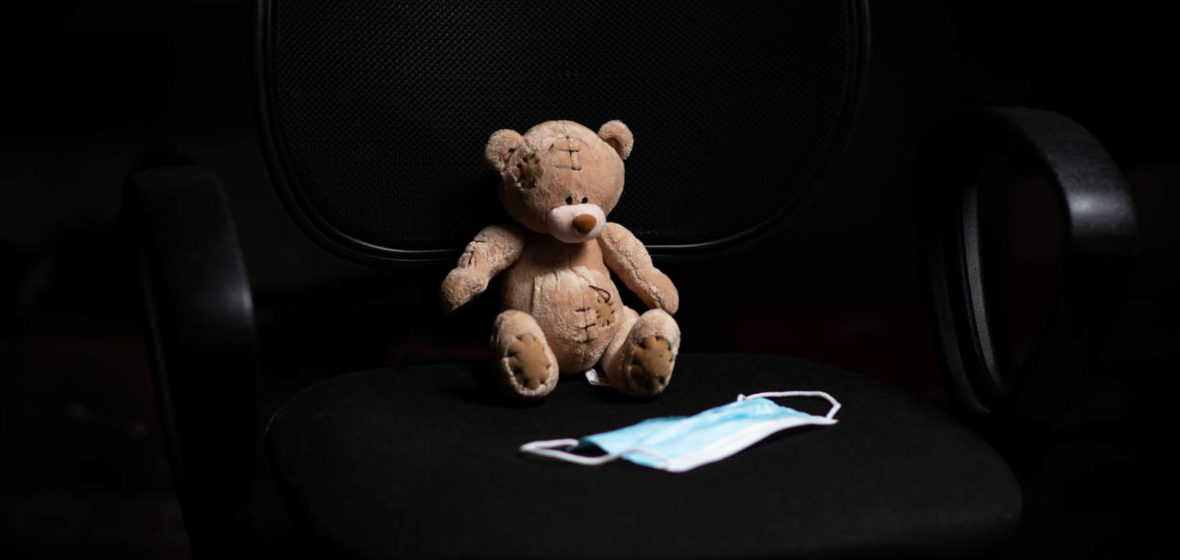Snapshot
- An Independent Children’s Lawyer (‘ICL’) is a lawyer that is appointed in family law matters to represent the best interests of a child. Not every matter will require an ICL: it will depend upon the circumstances of the matter.
- The role of the ICL largely revolves around facilitating the participation of the child in proceedings, gathering evidence and case management.
- An ICL must act impartially and form an ‘independent view’ about what orders are in the best interests of the child, based upon the available evidence, and must continually act in the best interests of the child.
What exactly is an Independent Children’s Lawyer (‘ICL’)? And what does an ICL do? This article is intended as an overview of the general principles around the role of the ICL in family law proceedings, the work they do, and how they become involved in proceedings.
How does an ICL get involved in Court proceedings?
An ICL may be appointed in a matter by the Court (at the request of either or both parties, or at the Court’s own volition) in circumstances where one or a number of ‘factors’ are present in a matter and the Court forms the view that the child’s interests ‘ought to be independently represented’ (see s 68L(2) Family Law Act 1974 (Cth) (‘FLA’)).
These factors are often referred to as the ‘Re K factors’ after the case of the same name which sets out a non-exhaustive list of circumstances when an ICL may be appointed by the Court (Re K (1994) FLC 92-461). These include but are not limited to instances where there are allegations of child abuse or neglect; there is intractable/high level conflict between the parents; there are allegations of family violence; a child may be expressing strong views; it is proposed that siblings may be separated; a child is alienated from one or both parents; one or both parents suffer serious mental health issues; and/or the matter involves complex issues.
In New South Wales, once the Court makes an order requesting the appointment of an ICL that request is forwarded to Legal Aid. Legal Aid will administratively and financially facilitate the appointment of either an in-house ICL or a panel practitioner. Solicitors who work as ICLs must complete specialist ICL training, which is run through National Legal Aid, and must have significant experience in family law. National Legal Aid has developed a helpful website that provides information and support for current ICLs (See: www.icl.gov.au).
What are the obligations and expectations of an ICL?
Section 68LA of the FLA sets out the role and duties of a solicitor performing the role of ICL. An ICL is appointed to act in the best interests of a child – this does not equate to acting on the child’s instructions, as the role of ICL is not one of direct representation, rather the ICL acts in the ‘child’s best interests.’ The ICL must form an ‘independent view’ about what orders are in the best interests of the child, based upon the available evidence
(s 68LA(2)(a)) and must act in the best interests of the child (s 68LA(2)(b)).
A fundamental aspect of the role of the ICL is to put the views of the child before the Court (s 68LA(5)(b)), preferably in admissible form. The presence of the ICL enables the child to have a ‘voice’ in the proceedings. The appointment of an ICL is one mechanism which allows a child the ability to participate in proceedings, to voice their views about their own care and to have issues that are important to them presented to the Court. In this way, having an ICL involved in proceedings is one way to practically ensure the rights of children are met (see Articles 9 and 12 of the United Nations Convention on the Rights of the Child). There are additional methods by which a Court may obtain the ‘voice’ of a child, e.g. reports where a child is interviewed by a family consultant, specialist psychologist or counsellor who provides a written report to the Court.
It should be noted that the notion of putting the views of a child before the Court does not mean there is an obligation on the ICL to necessarily disclose to the Court information that the child tells the ICL (s 68LA(6)). However, the ICL may disclose to the court any information the child communicates to the ICL if the ICL considers the disclosure to be in the best interests of the child (s 68LA(7)). Like other ‘mandatory reporters’, an ICL is obligated by law to notify a prescribed child welfare authority (in NSW, the Department of Communities and Justice (‘DCJ’)) if they have ‘reasonable grounds for suspecting that a child has been abused or is at risk of being abused’ (s 67ZA).
National Legal Aid published Guidelines for Independent Children’s Lawyers (2021) (‘Guidelines’) which set out a number of minimum expectations for ICLs to fulfil in his or her role and well as the limitations of the role.
While the Guidelines are not binding, it is nonetheless a useful reference for solicitors embarking on ICL work. For example, the Guidelines set out an expectation that an ICL will meet the child being represented, except in certain circumstances such as a child being under school age, exceptional circumstances (e.g. where there are ongoing sexual abuse allegations) or where there might be practical limitations such as geographical distance. The COVID-19 pandemic has been a facilitator in creative options for lawyers and their clients, including meeting children via audio-visual means, such as ‘Zoom’, if the lawyer forms the view that an online meeting is appropriate in all the circumstances. Thus, geography is no longer the limitation that it once was. Ultimately, however, the Guidelines make clear that it is a matter for the ICL to determine, based on the circumstances of the matter, if it is appropriate to meet a child; and also, the nature of how such meeting should take place (see Guidelines, 6.2). (For a useful resource that can help children understand the role of the ICL and the court proceedings more generally see: www.bestforkids.org.au).
What does an ICL do?
An ICL may carry out a number of different tasks in order to gather evidence to put before the Court, and in order to form a view about what orders are in the best interests of the child. This includes, but is not limited to:
- meeting a child (if appropriate) and providing the child with an opportunity to express their views, without pressure or influence from other people;
- issuing subpoenas: this may include to a child’s school, the child’s treating doctors, DCJ etc;
- reviewing the material before the Court, including the subpoena material and any reports, and bringing the Court’s attention to information relevant to the matter;
- speaking to the child’s school, which may include speaking with teachers, the principal and/or counsellors;
- consulting with family consultants and other relevant experts;
- assisting with arrangements to engage independent experts, which may be based at the Court, or externally, in order to prepare reports;
- assisting with negotiations between the parties and organising family dispute resolution mediations.
As is apparent from the list above, the role of the ICL is a varied role that not only enables the child’s participation in the proceedings, but also includes evidence gathering, to ensure relevant information and matters are before the Court, assisting the parties in reaching agreement, and assisting the Court from a case management perspective.
An ICL needs to be adaptable to the matter and, in some cases, will need to be more proactive due to the nature of the matter. For example, where parties in a matter are self-represented, this may mean the ICL needs to be proactive to ensure relevant evidence is brought before the Court, due to the fact that self-represented litigants are not usually ‘sophisticated clients’ and are therefore less likely to be able to gather such evidence and put it before the Court (see Duffy v Gomes (No.1) [2015] FCCA 1121.
Importantly, ICLs often play a significant role in assisting parties to attempt to resolve matters, via alternate dispute resolution means and through negotiation between the parties. The ICL is meant to act as an ‘honest broker’ on behalf of the child in any such negotiations (see Guidelines, 6.4). This part of the ICL role is perhaps understated (although overtly referred to in s 68LA(5)(e) of the FLA) as it is often work that is done behind the scenes via email, telephone and negotiations outside of courtrooms (and now, during pandemic times, via MS Teams and Zoom).
An ICL will carefully review and consider all the evidence before the Court and form a view about what orders he or she thinks are in the best interests of a child. It is worth noting that the ICL, in carrying out his or her work, also has a duty to minimise the trauma that may be imposed upon the child due to the proceedings (see s 68LA(5) FLA).
Conclusion
As you can see from this short overview, the role of the ICL is a varied and fulfilling role. How an ICL approaches each case will be determined by the nature of the matter, keeping in mind the legislative requirements of the role and the Guidelines for ICLs, while always acting in the best interests of the child.





